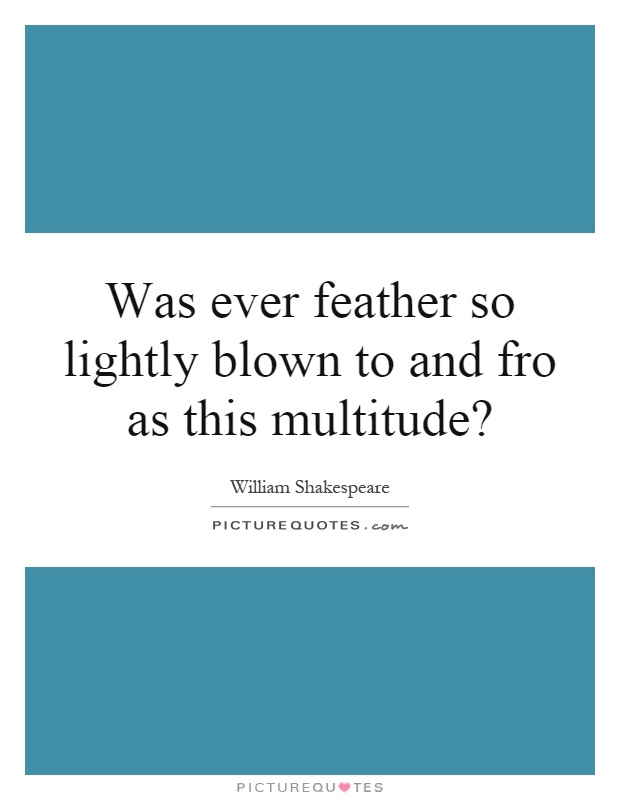Was ever feather so lightly blown to and fro as this multitude?

Was ever feather so lightly blown to and fro as this multitude?
The line "Was ever feather so lightly blown to and fro as this multitude?" is from William Shakespeare's play Julius Caesar. In this particular scene, Mark Antony is addressing the crowd after Caesar's assassination, trying to turn them against the conspirators who killed their beloved leader. The line reflects the fickle nature of the crowd, who can be easily swayed one way or another depending on the words of a skilled orator.The image of a feather being blown to and fro is a powerful metaphor for the crowd's susceptibility to manipulation. Just as a feather is at the mercy of the wind, so too are the people in the crowd at the mercy of Antony's persuasive rhetoric. They are easily swayed by his words, shifting their allegiance from one side to the other with little thought or consideration.
Shakespeare often explores the theme of manipulation and persuasion in his plays, and this scene in Julius Caesar is a prime example of how language can be used to control and influence others. Antony's skillful use of rhetoric and emotional appeal is able to turn the crowd against the conspirators and incite them to riot.
The line also speaks to the power dynamics at play in the play. The crowd, like a feather, is light and easily moved, while Antony, like the wind, is able to exert control and influence over them. It highlights the idea that those in positions of power can use language and persuasion to manipulate and control others, even a large and unruly crowd.
Overall, the line "Was ever feather so lightly blown to and fro as this multitude?" is a powerful and evocative image that captures the fickle nature of the crowd and the manipulative power of language. It serves as a reminder of the dangers of blindly following charismatic leaders and the importance of critical thinking and independent judgment.












 Friendship Quotes
Friendship Quotes Love Quotes
Love Quotes Life Quotes
Life Quotes Funny Quotes
Funny Quotes Motivational Quotes
Motivational Quotes Inspirational Quotes
Inspirational Quotes